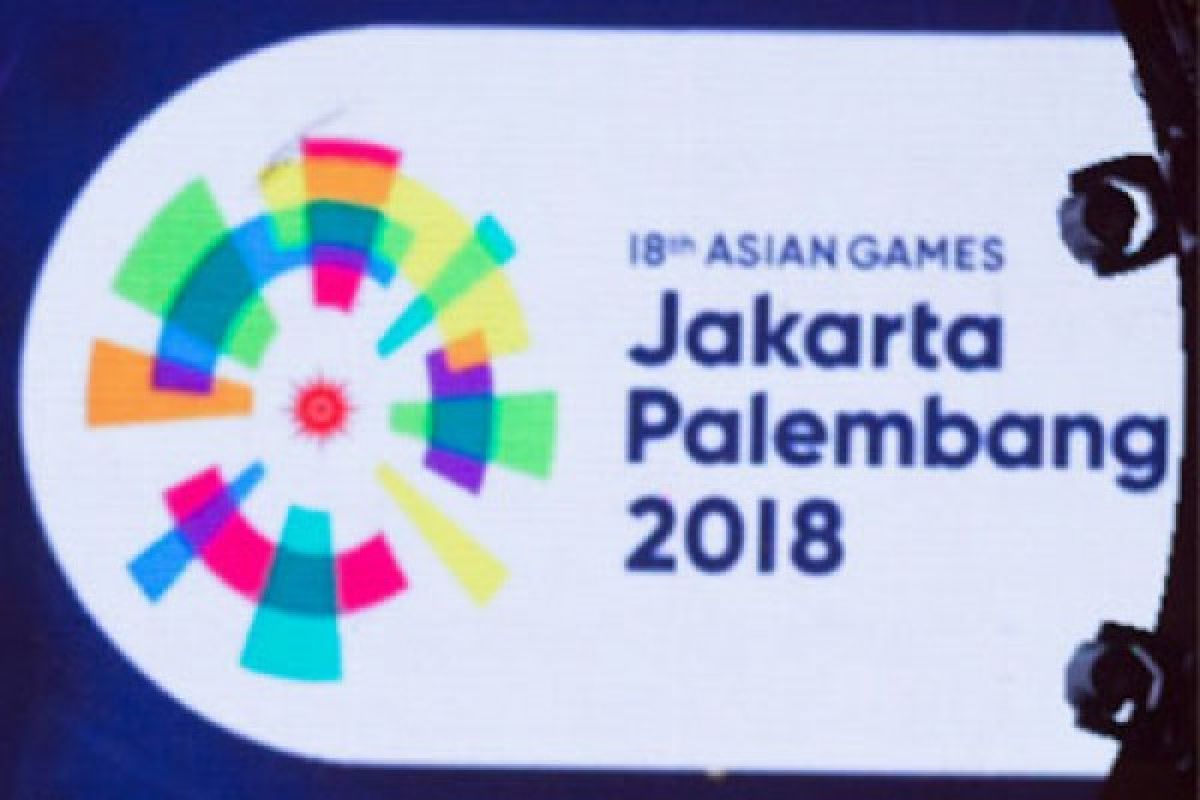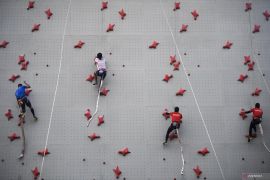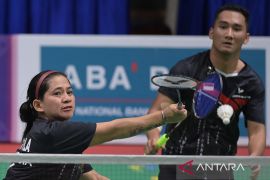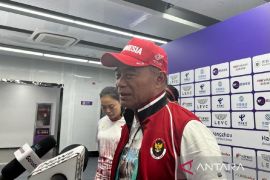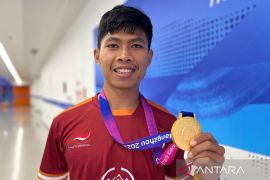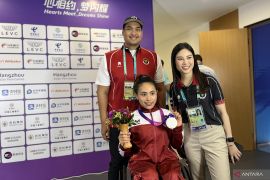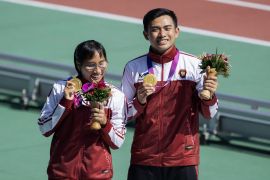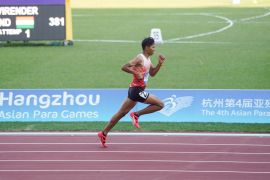The statement showed that the country`s founding father, who proclaimed Indonesian independence, saw that sports could be used effectively for human development. At that time Soekarno had a vision that Indonesia was one of the world`s ten largest powers in sports.
Outstanding achievement gives a nation a big pride. An athlete or a team could give a nation world fame more than an economic progress recorded by a country.
Only recently, an Indonesian sprinter Lalu Muhammad Zohri gave the country such a pride. The 18-year youngster emerged as a champion in a world 20-year athletic championships in Finland on 11 July 2018. He finished in 10.17 second in a 100-meter race.
At the same time Zohri, from West Nusa Tenggara, broke the national junior record of 10.25 seconds he chalked up himself at an Asian Games Invitation Tournament held in February 2018.
The previous best record for 100-meter race in Asian Games by Indonesian sprinter was in 1986 finishing the 8th at the quarter finals.
"I am very happy with my best record and performance in in this national junior championships. Now I am ready for Asian Games next month. I am proud. This is my best performance in athletic," Zohri had said .
Asian Games
Asian Games is Asia`s biggest sport event. The event was preceded by "Far Eastern Championship Games" held for the first time in 1938 to show the unity and cooperation between Japan, the Philippines and China as the embryo .
A number of countries gained independence after the World War II and the new independent countries proposed a new sport competition to bring them closer to each other and give them greater mutual understanding.
When the Olympic Games took place in London in 1948, Indian representative Guru Dutt Sondhi proposed to leaders of Asian contingents to hold a sport event among Asian countries.
All Asian representatives agreed and started meetings to form an Asian Athletic Federation and a committee for the preparation to design a charter.
Asian Athletic Federation was finally formed in February 1949 named Federation of Asian Games. The federation agreed to hold the first Asian Games in the Indian capital city of New Delhi in 1951 and the event was to be held every four years.
The second Asian Games was held in the Philippine capital of Manila in 1954 and the third in Tokyo, Japan in 1958. On May 23 , 1958, The Council of the Federation of Asian Games agreed to proposal for Jakarta, Indonesia to host the next or the 4th Asian Games in 1962.
Jakarta was then busy preparing the biggest sport event to be hosted ever by the country. In order to speed up construction facilities and infrastructure the government formed a "Command" in charge of Asian Games, directly under the command of President Sukarno with executive commander Maj.Gen. D. Suprayogi.
A big sport complex, Senayan, was then built occupying wide land necessitating relocation of people from a number of kampongs including Senayan, Petunduan, Kebon Kelapa and Bendungan Hilir. The location became a landmark `Stadion Utama Gelora Bung Karno`.
In addition to the Main Stadium, the government also built Swimming Stadium with a capacity of 8,000 seats, Tennis Stadium with a capacity of 5,200 seats and Madya Stadium with a capacity of 20,000 seats, occupying a land area of 1.75 hectares. Construction of all of the facilities was finished in a year.
The government also built a National Television Station to broadcast the Asian Games programs. On July 25 in 1961, Information Minister R Maladi signed a decision on the setting up of Committee for Television Preparation.
In October 1961, President Sukarno ordered for the construction of a studio and two TV towers in Senayan.
The national television station named Televisi Republik Indonesia (TVRI) finally held trial operation to coincide with the celebrations commemorating the country`s Independence Day at the Merdeka Palace on August 17 in 1962.
Apart from sport facilities, the Indonesian Government also built a number of other supporting facilities and infrastructure including the MH Thamrin and Gatot Subroto thoroughfares, the Semanggi bridge and Hotel Indonesia all completed as scheduled ahead of the opening of the sport event.
As a symbol of Indonesian hospitality in welcoming the foreign athletes to take part in the Asian Games, the government built a Welcoming Monument at the southern end of the MH Thamrin thoroughfare right in front of Hotel Indonesia.
Conflict
However, political conflict marred the relatively successful implementation of the 4th Asian Games in Jakarta. The Federation of Asian Games was split over whether to invite Taiwan and Israel to take part in the games.
As a host and in a show of sympathy for China and Arabian countries, the Indonesian Government rejected visa for both Israeli and Taiwan contingents.
The decision was against the principle of the Federation of Asian Games and the promise of the Indonesian Government itself that had said it would invite all members of the Federation including those not having diplomatic ties with Jakarta.
The International Olympic Committee, which has a doctrine not to mix politics with sports, strongly denounced the decision, but the Indonesian government refused to change its decision .
As a result , Indonesia Sports Committee membership in the International Olympic Committee was suspended and could not take part in the Tokyo Olympic games in 1964.
In reaction to the suspension by the International Olympic Committee, President Sukarno announced the setting up of what he called Games of New Emerging Forces (Ganefo) as a rival organization of Olympic Games.
The first Ganefo was held in Jakarta in November 1963 with participants of 2,700 athletes from Asia, Africa, Europe, and Latin America, using the facilities built for the 4th Asian Games.
The second Ganefo was held in Phnom Penh, Cambodia. China which was to hold the third Ganefo in Beijing cancelled the plan and offered North Korea to host the games in Pyongyang.
However, the third Ganefo never took place and finally it was dissolved.
Indonesia, therefore, hopes that the 2018 Asian Games, to be held in Jakarta and Palembang would be a success and would provide another pride for nation - not only proud for being a good host but also for good performance of its athletes.
It is not impossible that the Asian Games XVIII, will give birth to more "Zohri" in other sport branches to inspire more young Indonesian people with a can-do spirit.
Reporter: Dewanto Samudro, Albert Saragi
Editor: Fardah Assegaf
Copyright © ANTARA 2018
